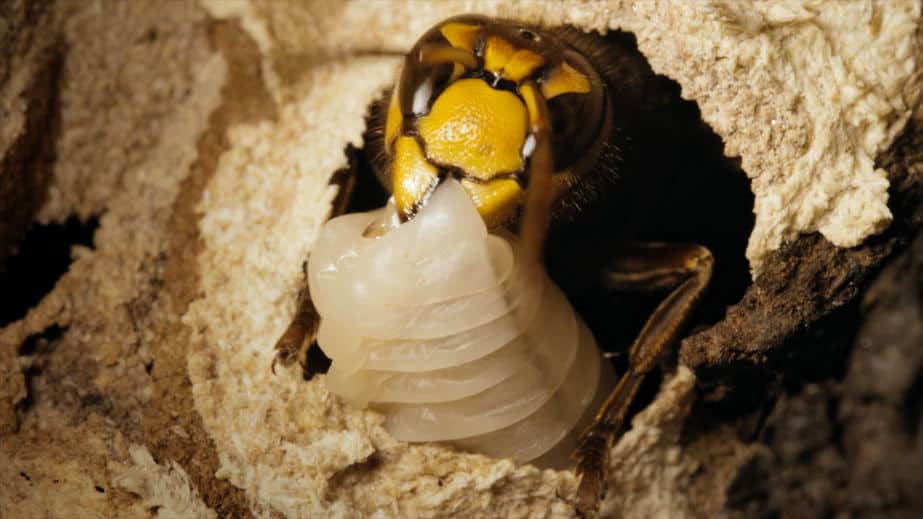You may have wondered just how bees and wasps interact and if the wasp is a threat to the bee.
Wasps do prey on bees alongside many other insects, but most species do not specially target bees. Asian hornets do target beehives, however, and will eat the bee brood and honey. While bees in Asia have developed a defense mechanism, the bees outside Asia are more vulnerable to attacks by invasive Asian hornet colonies.
let’s take a closer look at the relationship between bees and wasps.
Do all wasps kill bees?
Almost all wasps will kill bees along with other insects. Wasps are apex predators and will kill many insects including caterpillars, aphids, spiders, and bees.
Wasps kill insects not to feed themselves, but rather to feed their developing larvae in the nest. Developing larvae need a lot of protein to develop. It is estimated that a colony that produces 10,000 wasps over a season will collect up to 4000 insects a day as a food source. (Source: Richard Jones)
The wasps will cut up the insects and partly chew them before taking them to the nest to feed to the wasp larvae. The more food and the higher the protein quality the greater the size of a wasp colony.
Bees for the most part make up just a small portion of this prey, but wasps will target whatever insect they can. For this reason, they are very important for controlling the size of the insect populations that otherwise would be considered pests. See this article. Bees, however, are not regarded as pests but valuable pollinators and providers of honey.
Which wasps are the biggest threat to bees?
Most wasps will kill bees opportunistically but do not specially target them. Most wasps can be just as happy eating the meat from our picnic tables. See this article. The Asian hornet is an acceptation to this, however, as they have become specialized bee killers.
Asian hornets, including giant Asian hornets known colloquially as murder hornets, will target and raid beehives. Their target is the brood in the hive along with the honey.

They will then attack a beehive in several hundred. Firstly, they will pick off the adult bees decapitating them, before raiding the nest itself. So efficient are they at this that they have been known to wipe out an entire colony of bees in little more than 2 hours.
Can bees defend themselves from hornet attacks?
Bee stings are seemingly ineffective against hornets, but Asian bees have evolved an ingenious defense mechanism. They congregate together into tight balls that smother the invading hornets. The balls of bees create so much friction that they effectively cook the hornets caught within their midst. While many bees will die in the process their defense is often enough to secure the survival of the colony.
European and North American bees have not developed this defensive strategy, however, so the introduction of Asian hornets into Europe and North America are an increasing threat to bee populations.
Do bees attack wasps?
Unlike wasps, bees are not carnivorous and so they do not prey on insects for food. This is one of the principal contrasts between bees and wasps. While bees make honey, most wasp species do not. See this article. nevertheless, wasps will be attracted to honey and given the opportunity will attempt to steal it.
